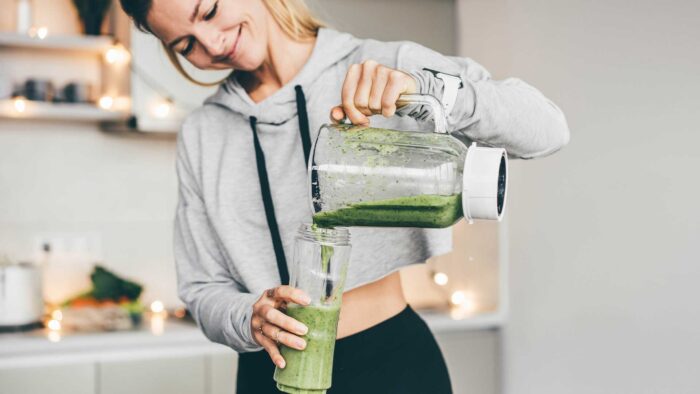Discover the vitamins and supplements that can uplift your energy
- READING TIME 6 MIN
- PUBLISHED March 14, 2024
- AUTHOR Donna
Key takeaways
- Fatigue is a top health concern, with up to fifth of all doctor’s visits related to feeling low in energy.
- Supplements are essential when diet alone doesn’t meet energy-boosting nutrient needs.
- Vitamins and minerals like vitamin C and iron, as well as Siberian ginseng and guarana supplements can play key roles in combating fatigue.
Discover the vitamins and supplements that can uplift your energy
Many people don’t realize how common tiredness or fatigue is until they start discussing it with others. It’s a shared experience that often goes unaddressed, yet it significantly impacts daily life.
In fact, fatigue is among the top five most common health concerns, with up to 20 percent of all visits to family doctors occurring because people feel persistently tired and low in energy.1, 2
Research has also found that fatigue is more common in women, which can be partially explained by hormonal fluctuations during menstruation, pregnancy and perimenopause.3, 4
Energy-boosting dietary supplements
Ensuring we have the stamina to tackle our daily tasks is key and that’s where certain vitamins and dietary supplements come into play. These nutrients are the building blocks for various physiological processes that shape our energy metabolism.
A balanced and healthy diet should be the first and foremost source of power-boosting nutrients. However, sometimes it’s not possible to meet our daily requirements through food alone, making supplements a useful ally.
Let’s take a closer look at the vitamins, minerals and a couple of other nutrients that stand out the most in supporting our energy needs and overall well-being.
Vitamin C
Vitamin C, also known as ascorbic acid, is a key nutrient that our body needs to function properly. There’s also a link between the vitamin and our mood. When people lack enough vitamin C, they often feel fatigued or down.

Adequate levels of the nutrient, on the other hand, can help combat oxidative stress, contributing to overall health and vitality. Vitamin C may even mitigate the impact of anxiety and other mood disorders.5
A recommended daily intake for adults is 40 milligrams. Ideally, your daily diet should provide all the vitamin C your body needs. Fruits and veggies are the best sources, in particular citrus, bell peppers, tomatoes, broccoli and cabbage. Since vitamin C isn’t stored in the body, it’s essential to incorporate it into your daily diet. However, if your diet lacks balance, a supplement offers a practical solution.
Magnesium
Magnesium is another essential mineral, participating in over 300 biochemical reactions critical for energy production. Its role is ensuring the smooth conversion of carbohydrates and fat into the energy your body requires.
Adult men+ should aim for 400–420 milligrams of magnesium daily, while women+ should target 310–320 milligrams to meet their recommended dietary allowances.9
If you are looking to naturally boost your magnesium levels, turn to leafy greens, nuts, seeds, legumes and whole grains.
Fun fact: pumpkin seeds are the absolute champions when it comes to magnesium content levels.10
Vitamin B12
Vitamin B12, also known as cobalamin, also plays a vital role in energy production. A deficiency can result in fatigue, weakness or even anemia.
B12 is primarily found in animal products, which means that individuals following a vegetarian or vegan diet, in particular, may need to take supplements or eat fortified foods to maintain an adequate intake.
The same holds for elderly individuals and those with digestive tract conditions impacting nutrient absorption. Adults are advised to consume 2.4 micrograms daily, however, higher doses have also been found to be safe. Your body absorbs only as much as it needs and any excess passes through your urine.11
Iron
Iron is important for the production of hemoglobin, which transports oxygen in the blood. Meeting your daily iron requirement is therefore a safeguard against anemia, a condition characterized by low red blood cell levels.
Anemia causes fatigue and weakness. It’s also quite widespread, affecting around 20 percent of the global population.12 Men+ should aim to get 8 milligrams of iron per day, while women+ need 18 milligrams during their reproductive years, and more during pregnancy.13
Vitamin D
Let us also highlight vitamin D or the so-called sunshine vitamin. Beyond its role in bone and muscle health, low levels of vitamin D are also linked to feeling fatigued and tired, as well as anxious or affected by mood disorders in other ways.14
Deficiency in vitamin D is widespread, affecting one billion people globally, with 50 percent having insufficient levels.15 Ensuring sufficient vitamin D through sunlight, diet and supplements is key to maintaining vitality and fighting fatigue. You should aim for no more than 100 micrograms (4,000 IU) of vitamin D daily, as exceeding this amount may pose certain risks.16

Siberian ginseng
Siberian ginseng, or eleuthero, is known as an adaptogen, a natural substance that helps the body adapt to stress and maintain balance.17 It offers a sustained release of energy by improving circulation, leading to better blood flow in the brain and muscles without the typical spikes and crashes associated with energy drinks or sugar rushes. Studies suggest that Siberian ginseng may improve concentration and performance in individuals with mild to moderate fatigue.18, 19
On a physical level, other studies have linked taking eleuthero with increased levels of oxygen intake and lower levels of lactic-acid buildup.20
The recommended daily dosage for adults is three to six grams, ideally taken in the morning between meals. It is advisable to limit continuous use to six weeks, followed by a 2–3-week break.21
Guarana
Guarana is often found in energy drinks, offering a caffeine boost to help with focus and mental energy. Surprisingly, guarana seeds can contain four to six times more caffeine compared to coffee beans.22 The caffeine in guarana works by blocking adenosine, a compound that promotes relaxation in the brain. Studies even suggest that taking a guarana-containing vitamin supplement may reduce feelings of fatigue during tests when compared to a placebo.23
There is no standard dose of guarana. However, doses greater than 250–300 milligrams daily have been linked to side effects. These depend on the dose and can range from insomnia to increased heart rate and stomach irritation.24 Avoid using at night because it contains caffeine and has other stimulatory properties.25
If you want to find out more about the benefits of guarana, make sure to read through our dedicated article.
A wholesome approach
There’s no quick fix when it comes to maintaining good health. Increasing, as well as maintaining, energy levels requires a nuanced approach. Consider your personal circumstances such as your lifestyle, diet, stress levels, existing health conditions and potential medication use.

Anchoring our efforts in whole foods, stress management, quality sleep, hydration, and physical activity is essential. Supplements should complement, not replace, a well-rounded lifestyle and dietary habits.
Finally, pay attention to your body’s signals, especially if you experience persistent fatigue, as it may indicate underlying health issues. Visit your doctor for consultation and any further tests.
REFERENCES
- https://www.ncbi.nlm.nih.gov/pmc/articles/PMC10416797/
- https://www.ncbi.nlm.nih.gov/pmc/articles/PMC8579431/
- https://www.ncbi.nlm.nih.gov/pmc/articles/PMC10416797/
- https://www.verywellhealth.com/why-am-i-so-tired-and-have-no-energy-female-7749984
- https://www.mayoclinic.org/healthy-lifestyle/nutrition-and-healthy-eating/expert-answers/benefits-vitamin-c/faq-20058271
- https://www.nhs.uk/conditions/vitamins-and-minerals/vitamin-c/
- https://www.hsph.harvard.edu/nutritionsource/vitamin-c/
- https://ods.od.nih.gov/factsheets/Magnesium-HealthProfessional
- https://ods.od.nih.gov/factsheets/Magnesium-HealthProfessional/
- https://my.clevelandclinic.org/health/articles/15650-magnesium-rich-food
- https://www.mayoclinic.org/drugs-supplements-vitamin-b12/art-20363663
- https://www.ncbi.nlm.nih.gov/pmc/articles/PMC8671013/#r4
- https://www.webmd.com/diet/supplement-guide-iron#1-2
- https://www.webmd.com/vitamins-and-supplements/what-to-know-about-vitamin-d-and-mental-health
- https://my.clevelandclinic.org/health/diseases/15050-vitamin-d-vitamin-d-deficiency
- https://www.nhs.uk/conditions/vitamins-and-minerals/vitamin-d/
- https://my.clevelandclinic.org/health/drugs/22361-adaptogens
- https://www.cambridge.org/core/journals/psychological-medicine/article/abs/randomized-controlled-trial-of-siberian-ginseng-for-chronic-fatigue/B9941CDB55F4C53FF5DB1D48B5C350A7
- https://www.eurekaselect.com/article/14828
- https://pubmed.ncbi.nlm.nih.gov/21793317/
- https://www.medicalnewstoday.com/articles/319084#how-to-use-eleuthero
- https://www.ncbi.nlm.nih.gov/pmc/articles/PMC4399916/
- https://pubmed.ncbi.nlm.nih.gov/18077056/
- https://www.rxlist.com/supplements/guarana.htm
- https://pubmed.ncbi.nlm.nih.gov/18077056/
RELATED ARTICLES
Explore more
Feed your curiosity with more content. Dive deeper and explore our selected articles, curated just for you.



